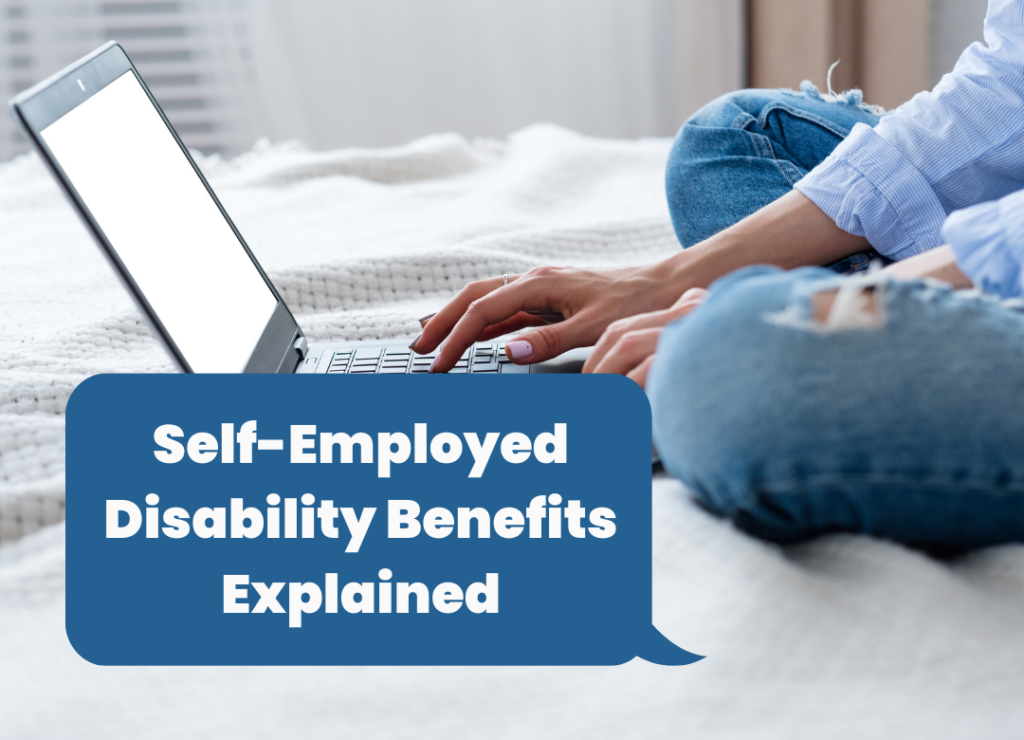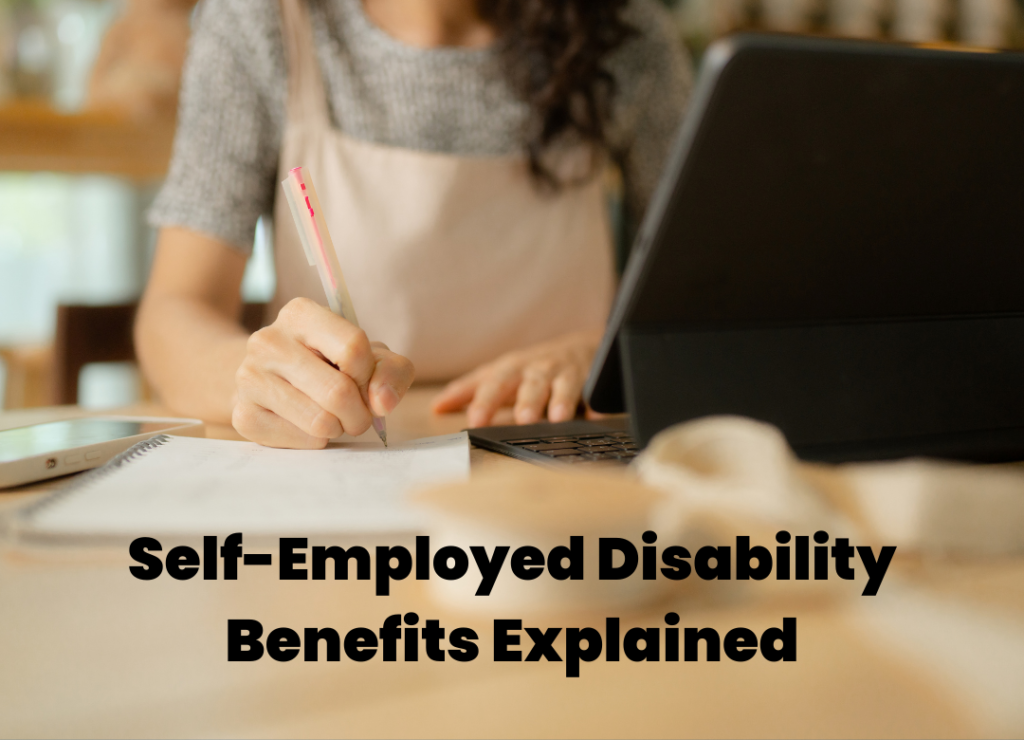Can a self-employed person get Social Security disability benefits?
What benefits can you claim if you are self-employed?
Will a 1099 affect my disability?
We are often approached about questions related to working while trying to establish entitlement to various types of disability benefits. A claim for benefits can proceed if an individual is working less than full time and earning less than what Social Security considers to be “Substantial Gainful Activity” (SGA).
The amount a person can earn is subject to a cost of living adjustment so it varies year by year, for 2023 the amount is $1470. That amount is gross, or before any taxes or deductions. For the most part, we are able to give advice based on the amount of time you work and the amount you earn. However, that advice primarily applies to individuals who are employed by others and earn W2 wages. When an individual is self employed, or if they receive funds from a business they own the analysis is more complex.
Substantial gainful activity tests
In general, there are three tests that the Social Security Administration will use to evaluate whether your self-employment work is substantial gainful activity that will disqualify you for income replacement.
“Significant Services and Income” test
The first test is Significant Income. This is a determination of whether or not you provide significant services to your business and if you earn substantial income from the business, you are engaging in SGA. Whether or not your services are significant depends on what kind of business you have.
If you are the sole owner or worker in your business, your services are automatically considered significant. If this is your situation and your income from the business is more than the SGA amount ($1470 for 2023) per month, you are earning SGA and you will not be considered for disability benefits.
If you have a business with co-owners or employees, then there will be an analysis of how much you contribute to the business. Social Security will conclude that your services are significant if you either contribute more than half of the total time needed to manage the business each month or you manage the company for 46 hours or more a month.
When they look at the income you make from a business, Social Security looks at the business expenses and will subtract some items from your business revenue. These items can be things that would not necessarily be subtracted on your tax filings. For example, if you get unpaid help (perhaps, from family members); receive free rent, equipment, or other items they can be deducted from income if properly itemized.
You can also deduct from income expenses that are considered disability related work expense. This would be something like taxi fare if you are unable to drive yourself to work, or special equipment that allows you to do your job. After these expenses are deducted, the remaining amount is called “countable income.” If that amount is over the SGA amount (again, $1470 for 2023, but the amount changes year by year).
Social Security will use your average monthly income in these tests because earnings from self-employment generally change from month to month.
Comparability Test
Even if you are not performing significant services or earning over the Substantial Gainful Activity amounts, your self employment activity will be subject to further analysis. The comparability test will compare the work that you do with that of an unimpaired person in a business similar to yours.
If your work is determined to be comparable in terms of job duties, skills, work efficiency, amount of time worked and energy expended to the same activities of an unimpaired person performing the same job and earning substantial gainful activity levels, then the individual will not be allowed to pursue benefits.
An example of this type of analysis is a person who is engaged in farming, if a person claiming benefits is working the same amount of time, with the same skills and energy as an unimpaired person and earns only 1/4 of what the unimpaired person earns, SSA will determine that the comparable worth of the person who is seeking benefits is higher and the claim may be denied.
Worth of Work test
The final step in the analysis of self-employment income for SSA is the “worth of work test” which measures the value of what activities you perform and what types of skills you bring to your business. If the value of what you do is clearly worth more than your earnings, then again, the claim may be denied.
For example, if you are self-employed as a lawyer, and work 45 hours a month, but claim to earn only $700 per month, it is likely that the “worth of your work” will be determined to be much higher, despite the actual earnings. To make this determination, SSA will make a determination of what an average job pays per hour and apply that to determine what the worth of the work should be.

So can I own a business and collect Social Security benefits?
Generally, if you are self-employed and seeking benefits, the most important thing you can do is keep excellent records of your income, expenses and the amount of time you spend working.
The assistance of an attorney who is experienced in disability claims can be invaluable in ensuring that your work activity is within the permitted guidelines so that your claim can proceed efficiently and you can receive the benefits you need and deserve.
Resources for disability benefits for self-employed persons:


